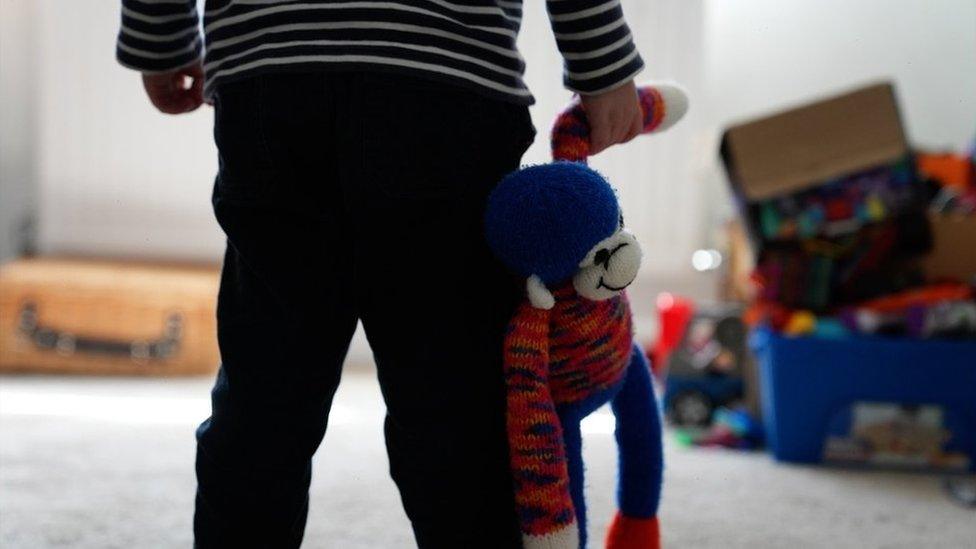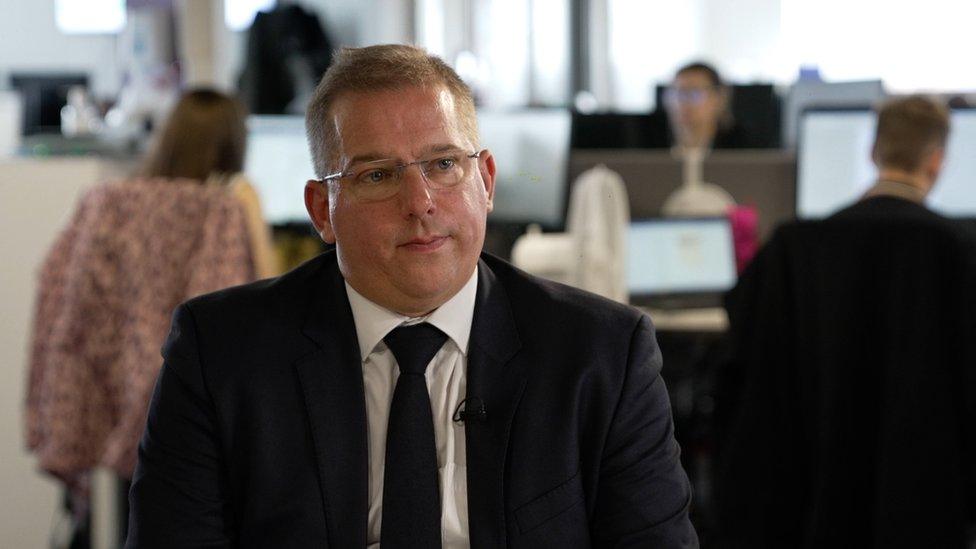Children's social work agency spending soars, research suggests
- Published

A growing shortage of children's social workers in the UK means councils' spending on agency staff has increased sharply in five years, BBC News research suggests.
Data from 125 out of 212 councils found spending up by almost two-fifths (38%).
Council bosses in England fear spending more on agency staff will leave less for children's services overall.
The Department for Education says it will set out plans for children's social work early in the new year.
John Gregg, director of children's services in Coventry, says the demand for help from children and families is increasing, but it is difficult to recruit enough permanent social workers.
Coventry has set up a social work academy to encourage and support newly qualified social workers but, nationally, vacancy rates are acute.
The latest official figures, external show England's vacancy rate rose to 16.7% in 2021, amounting to 6,500 empty posts and the highest rate since 2017.
Mr Gregg said: "The reality is if we're spending more money on children's services and vulnerable children, and we're spending on agency workers, rather than a full range of services for children, it does mean that children are going to get less of a service.
"I also think there were probably impacts on other areas of council service delivery, as well."

John Gregg, director of Coventry children's services, fears the impact of higher spending on agency staff
The BBC contacted all 212 councils in the UK under Freedom of Information law, and 125 replied.
In these local authorities, spending on temporary staff working with vulnerable children rose from £164.5m in 2017 to just over £227m by early 2022.
The increase was highest in England, from nearly £153m in 2017 to just over £213m five years later.
In Scotland the rise was 36%, but was lower, at 22%, in Northern Ireland and 11% in Wales.
However, the research also revealed significant variation in the amounts spent on agency staff by councils, with some spending less than they did five years ago.
The rise in the use of costly agency staff comes against a background of increasing pressure on children's social care budgets.
Last year, a report by the Local Government Association, which represents councils in England, said eight in 10 councils were having to overspend their budgets on children's social care, external because of rising numbers of vulnerable children needing help.
'Churn in the workforce'
Overall, councils are increasingly reliant on agencies, according to Steve Crocker, president of the Association of Directors of Children's Services.
Full-time staff are quitting their jobs because pay is not keeping pace with inflation, and agencies often offer better money and more flexible working, said Mr Crocker.
"The result is a churn in the workforce unlike anything I've ever known in my career. Collective efforts to cap agency pay are no longer holding and costs are spiralling," he said.
Richard Devine, a consultant social worker who has worked in council child protection services for more than a decade, says agency staff can be good but he fears having a temporary social worker can add to families' feelings of instability.
"I've had to work with children and their families over a period of several months or more and needed to build up trusting relationships with them, in order to get a clearer understanding of what's happening for them and their family," he said.
"I think, for agency social work, often they're not able to do that because of the short-term basis of their employment."
A 'costly' practice
In May 2022, a major review of children's services argued that the use of agencies to provide social workers should be reduced.
Author Josh MacAlister called the practice "costly", adding that it "works against providing stable professional relationships for children and families".
Instead, he recommended greater use of regional staff banks.
However, the organisation representing social work agencies says, with more children needing protection, services are increasingly stretched, and it is no surprise councils turn to agencies for help.
"Social workers are under enormous pressure," says Kate Shoesmith, deputy chief executive of the Recruitment and Employment Confederation.
"Too many feel the only way they can limit their caseloads and progress their careers is to quit their jobs and join an agency," she says.
The Department for Education says it recognises there is more to do in recruitment, retention and development of children and family social workers.
"There are more child and family social workers than ever before, and we are investing more than £50m every year to support councils [to] recruit and retain even more, recognising the vital role they play in protecting and supporting vulnerable children," said an official.
Additional reporting by Jade Thompson